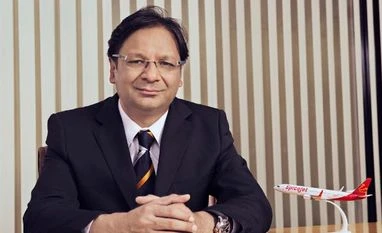The government on Friday curtailed the tenure of Ajay Tyagi as the next chief of capital markets regulator, the Securities and Exchange Board of India (Sebi), by two years, barely a week after his name was cleared to succeed incumbent U K Sinha with a five-year term.
Tyagi will now join as the Sebi chairman for an initial period of three years, official sources said on Friday, without citing reasons behind the curtailment of his term.
Fifty eight-year-old Tyagi, a 1984 batch IAS officer of Himachal Pradesh cadre presently posted as additional secretary (investment) in the department of economic affairs, will take over as the Sebi chief after the extended tenure of Sinha ends on March 1.
The appointments committee of the Cabinet, headed by Prime Minister Narendra Modi, had on February 10 approved Tyagi’s appointment for a period not exceeding five years or till the age of 65, according to an order issued earlier by the personnel ministry.
Besides regulating stock exchanges, the Sebi also supervises various kinds of market entities, including brokers, mutual funds, foreign institutional investors, rating agencies and investment bankers, as also thousands of listed companies.
Tyagi, who hails from Uttar Pradesh, is a postgraduate in economics. He was joint secretary in the ministry of environment, forest and climate change before joining the finance ministry on November 1, 2014, as additional secretary.
For a short while, he was also on the board of the Reserve Bank of India.
More From This Section
In the run-up to the appointment for the head of the capital markets regulatory body, many senior bureaucrats, including Power Secretary P K Pujari, were in contention for the title.
Incumbent Sinha, a 1976 batch IAS officer of Bihar cadre, had assumed office as the Sebi chairman on February 18, 2011, when the previous United Progressive Alliance government was in power.
He was later given a two-year extension. Days before the end of his tenure in February last year, he was given yet another extension till March 1.
Sinha’s six-year tenure as Sebi chief is the second-longest after D R Mehta’s seven-year term from 1995 to 2002.
)